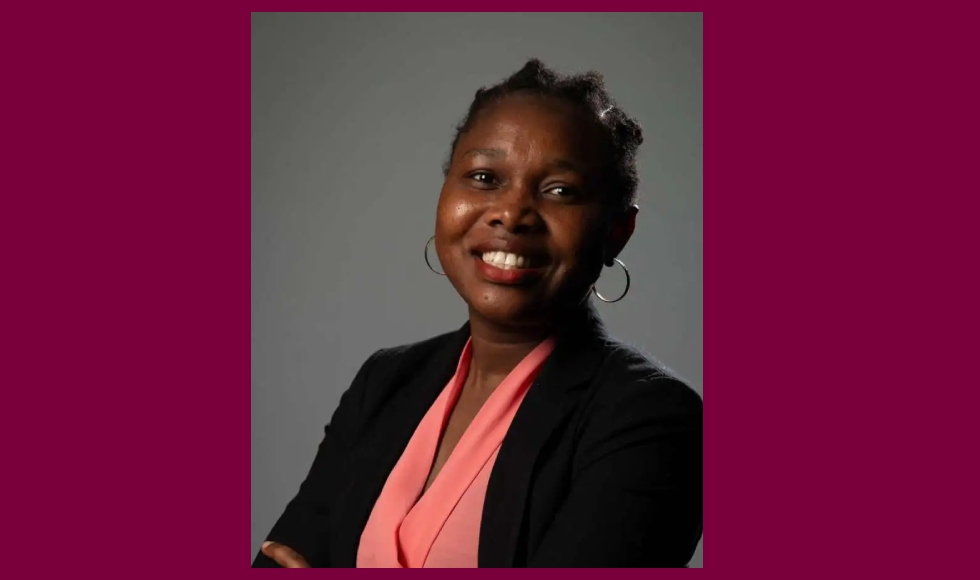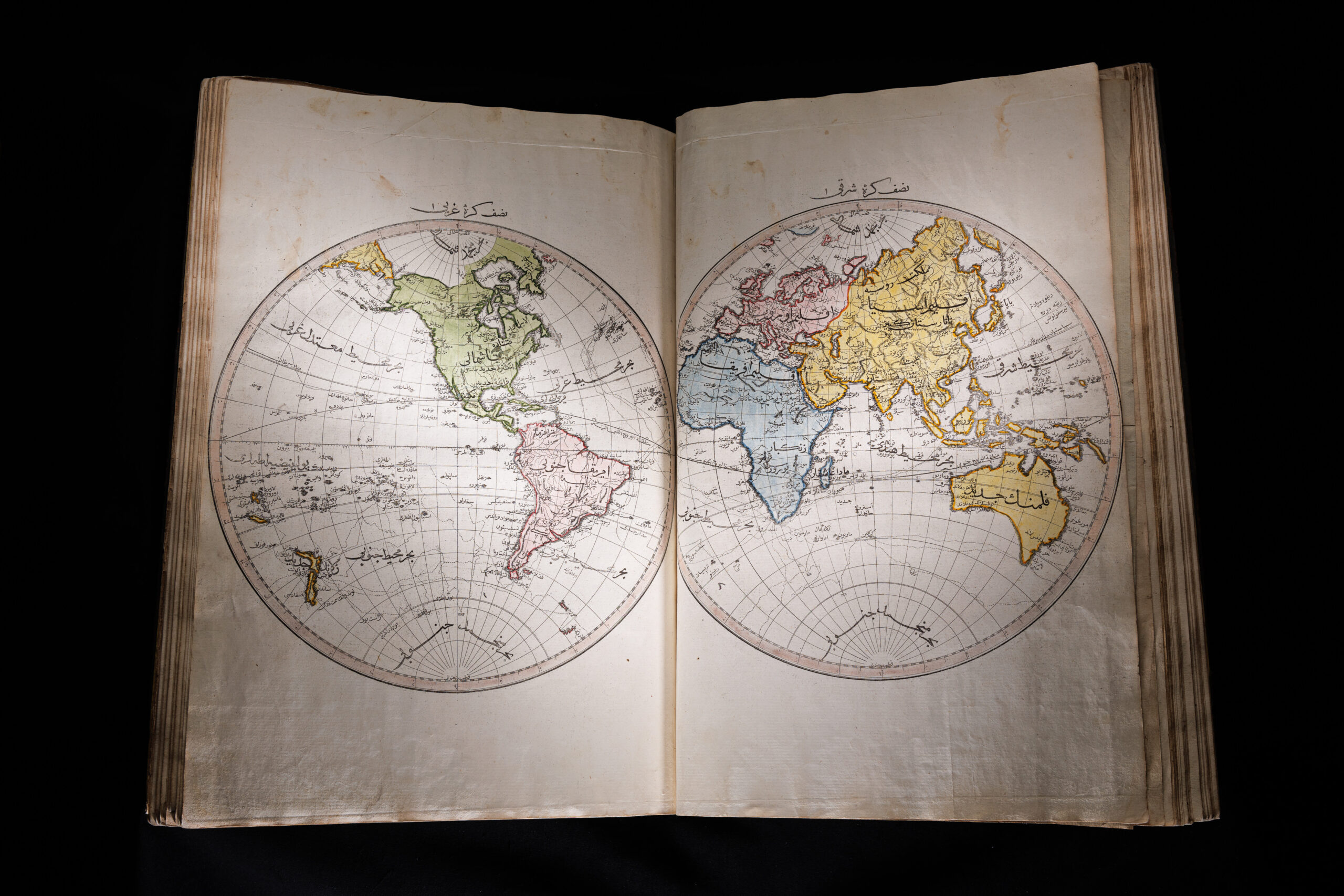Mary Edward receives MSU Excellence in Teaching Award

Mary Edward, a postdoctoral researcher in the Centre for Advanced Research in Experimental and Applied Linguistics, has received an Excellence in Teaching Award from the McMaster Student Union.
Edward, whose work focuses largely on the linguistics and sociolinguistics of signed languages, teaches American Sign Language as well as courses in second language acquisition.
The annual MSU Teaching Awards were established in 1978 to recognize outstanding teaching performance, including ability to communicate, approachability and enthusiasm. Excellence in Teaching awards are based on nominations from students and class evaluations, with one instructor being selected from each of the six faculties as well as other programs.
We chatted with Edward about her work and her approach to teaching.
Can you tell me about your research?
My research explores language from a multimodal and multilingual perspective, encompassing both spoken and signed languages. I specialize in sign language linguistics, language variation, sociolinguistics, cognitive linguistics, and discourse analysis, along with other areas of general linguistics.
My work has focused extensively on the linguistics and sociolinguistics of Ghanaian Sign Language and Adamorobe Sign Language, both used in Ghana. Additionally, I have collaborated with researchers in Nigeria on studies related to Nigerian Sign Language and indigenous sign languages in the country.
More recently, my interests have expanded to include multilingualism, language acquisition, documentation, and language endangerment.
What inspired you to get into your field? What inspires you now?
I began my journey into sign language research in 2011, driven by curiosity and a desire to communicate with my Deaf cousin. I was fascinated by the ability to connect with Deaf and Hard of Hearing individuals through sign language. However, my inspiration has since evolved.
As I became more immersed in the Deaf community and deepened my understanding of sign language linguistics, I began to see myself as an integral part of this vibrant world.
Today, what inspires me most is the ongoing need for research and advocacy in Deaf communities. As a hearing sign linguist, I feel a deep responsibility to engage meaningfully through researching, advocating, and building connections both within and beyond the Deaf community.
I am also motivated by the impact of my work. Through my research and publications, more people have come to recognize that sign languages are full-fledged human languages, with rich linguistic structures just like any spoken language. It is especially rewarding when my Deaf friends express appreciation for helping them understand the complex linguistic features of their own language.
Can you talk a little about your approach to teaching?
I believe that students thrive in an environment where they feel comfortable, valued, and encouraged to participate actively. My teaching approach prioritizes inclusivity, ensuring that diverse learning styles are recognized and accommodated. As a Black African scholar with international academic experience, I understand the importance of adapting pedagogical methods to meet the needs of a diverse student body.
I am committed to student-centered learning, tailoring my teaching strategies to support various learning styles. By incorporating one-on-one support and small-group interactions, I create opportunities for students to seek clarification and engage deeply with course material.
Assessment is a key component of my teaching philosophy. I integrate assessment-for-learning strategies to continuously gauge student understanding, allowing me to identify misconceptions and adjust my instruction accordingly. Encouraging students to ask questions and engage with feedback encourage an interactive learning environment that promotes critical thinking and knowledge retention.
One of your student nominees called you “an important advocate for the Deaf community.” Can you talk a little about that?
I have deep respect for the Deaf community and have had the privilege of engaging with Deaf individuals across various platforms in Africa, Europe, and North America, as well as at international conferences on Sign Language research.
Through ethnographic fieldwork in Ghana and Nigeria, I have gained valuable insights into the complexities of Deaf experiences, including the systemic prejudices they face at different levels.
I collaborate with Deaf researchers and students, and through these interactions, I have developed a deep appreciation for the passion many Deaf individuals have for linguistic research. However, opportunities for exposure and support remain limited.
With this understanding, I am intentional in my approach to teaching. I ensure that my teaching honour Deaf practices, encouraging inclusivity, and ensuring that Deaf culture is recognized and valued in every learning space I create.
You’ve worked and studied in several countries around the world. How does that international perspective inform your work as a teacher?
I have studied in Ghana, Norway, England, and Canada, and these diverse experiences have given me a broader perspective on teaching, learning, and research across different cultural and academic settings. This international exposure has significantly shaped my approach as both a researcher and an educator.
As an educator, my international experience informs my teaching philosophy. I design my lessons with an awareness of the diverse backgrounds of my students, recognizing their individual differences in learning styles, educational experiences, and language proficiencies. My goal is to create an inclusive classroom environment that bridges these gaps and promotes meaningful engagement for all learners.
What do you see as the impact of your work?
Before sharing the impact of my work, I’d like to recount a pivotal experience.
I was honoured to be a plenary speaker at Theoretical Issues in Sign Language Research (TISLR 15), a prestigious conference where sign language researchers from around the world convene every three years to present findings and engage in scholarly discussions.
Since its inception in 1986, TISLR had never been hosted in Africa—until January of this year, when the 15th edition took place in Addis Ababa, Ethiopia.
My connection to TISLR goes back several years. At TISLR 13 in Germany, I was the only Black African researcher to present on stage. It was evident that many attendees were troubled by this underrepresentation. When the time came to vote for the host country for TISLR 15, Ethiopia won the bid—marking a historic moment for African sign linguistics.
Presenting my work in Africa reaffirmed my belief that even small contributions can be part of a larger movement to bring African sign languages to the global stage.
Now, I see my work breaking barriers and challenging perceptions about Deafness, sign language linguistics, and the Deaf community. More people are becoming curious, seeking to understand sign languages and the lived experiences of Deaf individuals.
My work empowers Deaf and Hard of Hearing individuals to take active roles in sign language research and advocacy. Most importantly, it helps dismantle myths and misconceptions about the Deaf community, inspiring more people to learn sign languages and bridge the communication gap between the hearing and Deaf worlds.
What do you enjoy doing when you’re not doing your postdoctoral work at Mac?
Outside of academia, I cherish spending quality time with my husband and our three children. I have a passion for cooking and always look forward to preparing my family’s favorite meals. I also enjoy writing—not just academic publications, but also other works, including children’s books.
Humanities, Linguistics and Languages, UncategorizedRelated News
News Listing

2 days ago

McMaster Libraries ➚
Exploring the history of the Mediterranean through books, coins and other artifacts
Greek and Roman Studies, Humanities
4 days ago

